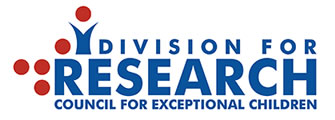
The Do’s and Don’ts of Parental Involvement in Youth Sports
Parents play a pivotal role in either positively shaping a child’s sport experience or negatively influencing the outcome. Parents need to help their children discover the fun in the activities, why learning the basic fundamentals are important, and how to demonstrate good sportsmanship. Demonstrating warmth, compassion and being empathically attuned to your child’s desires, fears, and frustrations are as necessary as learning the athletic skills.
Participating in organized sports enables a child to derive many positive benefits such as:
- Developing new physical skills, strengthening motor skills, and improving coordination.
- Experiencing the joy of participation through trying and being a team player.
- Working toward attaining mastery, and feeling competent and confident.
- Allowing a child to dream.
- Learning to handle adversity and accept defeat as no one wins all the time.
- Showing respect to authority figures (coaches and referees), being considerate to teammates (as physical, cultural, or religious differences will exist), and displaying honesty (making the right call vs. cheating).
Of course, the parents must first be willing to make the commitment for this responsibility because they are the ones giving their time such as driving to practices, continuing skill development by practicing at home or the park, and attending games, plus money, such as providing equipment, uniforms, league fees, team photos, and refreshments.
Additionally, in these beginning years of athletic skill development, no youngster can always remember their role, the rules, or even successfully execute the required play. Do your part to respond appropriately to their anxious, scared, or angry feelings. For some youngsters, accepting defeat is hard and your child will need help coping with the pain of losing and feeling sad, mad, or discouraged.
According to the National Alliance of Youth Sports https://www.nays.org/ and others, upwards of 35 million children play organized sports; yet by age thirteen approximately 70% drop out. This nonparticipation in sports leads to further concerns such as a greater obesity risk, less well developed interpersonal and social skills, or decreased self-image. There are many developmental reasons a child may drop a sport, such as wanting to trying something different, no longer having fun, not being athletically suited to that sport, or having a bad coaching or team experience. Your attentive listening may prevent your child’s premature departure.
During the early years, it is important to be sensitively attuned to your child’s non-verbal communications, voice tone, facial expressions, and body language. Words may not tell the whole story. Gestures may tell more about what’s going on inside your child’s mind. For example, pulling the brow of the baseball cap over his or her eyes while leaving the playing field with slumped shoulders speaks volumes. So does a recurring stomachache, which could be another way of saying, “I don’t want to play.”
It helps to remind your child that winning does not create a winner nor does losing create a loser. The focus should always be on the effort, not the outcome. The goal is to encourage your child to try his or her best, as effort is in his or her control.
What you can do:
Discuss the importance of persevering and not giving up. Even following a painful loss, you can always find something constructive to say to your child. Complimenting a sustained effort from start to finish or acknowledging rah-rah support to teammates while sitting on the bench offers acknowledgement of both active and passive contributions.
Help your child learn to be a gracious loser. Remind your child there are numerous factors that play a role; from external ones (bad weather, poor playing conditions) to other bad luck or human variables (such as an unlucky bounce or a missed call)
Try not to:
Be overly critical, judgmental or impose unrealistic pressures. Not only is this unfair to your child to, but too often it ends up ruining a positive youth sport experience as it can undermine self-esteem, curtail enthusiasm or the desire to participate.
The take-away —-
First, know your child’s strengths and weaknesses. With honesty, tact, and sincerity refrain from making unnecessary hurtful comments. This only injures your child, your relationship, and your child’s love of the game.
There is always the possibility something could prevent your child from having a good youth sports experience (i.e., an overzealous coach, being bullied, injury or concussion) but there are enough benefits that it’s worth trying at least once.
By providing appropriate nurturance, guidance, and understanding, plus being supportive, encouraging and realistic, chances are your child will find the fun and many of youth sport benefits. Moreover, your child will carry inside the knowing of being loved and valued which endures long past any game.
Resources:
The National Alliance of Youth Sports – https://www.nays.org/
The Positive Coaching Alliance – https://www.positivecoach.org/
The Aspen Institute- Sports & Society Program https://www.aspeninstitute.org/programs/sports-society/
Raising Your Game – Over 100 Accomplished Athletes Help You Guide Your Girls and Boys Through Sports.
Proper citation link for this blog post:
Corn, A. (May 10, 2018). Pros and Cons of Parental Involvement in Youth Sports. Retrieved from https://infoaboutkids.org/blog/pros-and-cons-of-parental-involvement-in-youth-sports.
















